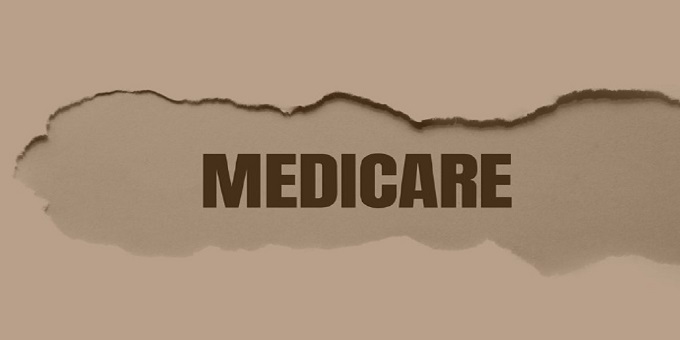

Lien Profile: A Short Primer on “Standard” Medicare Liens
- Class Action & Mass Tort
- 7 mins
Medicare Part A and/or Part B is authorized under the Section 1862(b) of the Social Security Act (the “Act”) (codified in 42 U.S.C. §1395y). Under Section 1862(b)(2)(A) and Subsection (b)(2)(A)(ii) of the Act, Medicare has priority recovery rights over all settlements, judgments, or other payments. In general, Medicare policy requires the recovery of payments from liability awards or settlements, whether the settlement arises from a personal injury action or a survivor action, without regard to how the settling parties stipulate to disbursements in settlement agreements.
Medicare Reimbursement Obligations
Medicare “liens” are a well-known part of every personal injury lawyer’s settlement checklist. If a law firm obtains a settlement, judgment, or award for a Medicare beneficiary and Medicare paid for that individual’s injury-related medical care, Medicare must be reimbursed for payments it made on a conditional basis.
The term “conditional payments” describes the injury-related healthcare payments Medicare made for treatment, even if another party is alleged to have caused—and may be legally responsible for—said injury. Medicare makes payments on the condition that the responsible party repays the Hospital Insurance Trust Fund for that treatment, item, or service. Because Medicare made the payment on the condition that it must be repaid, if a Medicare beneficiary receives a personal injury settlement, then Medicare technically must be reimbursed out of those settlement proceeds before any money can be distributed to that beneficiary.
Although traditional Medicare resolution is still a complex task, the process has become more standardized in recent years. Additional resources have also become available to assist settling parties that are attempting to properly verify a plaintiff’s Medicare eligibility status and resolve Medicare’s liens. To verify, resolve, and satisfy “standard” Medicare (Parts A & B), an attorney can report a case to Medicare’s recovery contractor—the Benefits Coordination and Recovery Center (BCRC)—in any of the following ways:
1.By calling 1-855-798-2627 (or 1-855-797-2627 [TTY/TDD])2.By sending a letter to:
Medicare – MSP General Correspondence
P.O. Box 138897
Oklahoma City, OK 73113-8897
3. By accessing the Medicare Secondary Payer Recovery Portal (MSPRP) at http://www.cob.cims.hhs.gov/MSPRP (the system enables the attorney to determine a client’s Medicare eligibility status, obtain claims information, report settlements, etc.)
When an attorney reports a case, the BCRC issues a Rights and Responsibility Letter (R&R) and then the attorney must submit “proof of representation” to receive the Conditional Payment Letter (CPL) within 65 calendar days of the issuance of the R&R. Attorneys must complete a thorough review of the CPL to ensure that it includes only medical claims that are related to the case. If an attorney identifies any claims that are unrelated to the personal injury claim, the attorney must submit a dispute, provide settlement information, settlement detail document (listing attorney fees and expenses), and request Medicare’s Final Demand (FD). Medicare typically mails the Final Demand within 30 calendar days of receiving the request. Medicare must receive payment within 60 calendar days of the FD’s issuance, although there is an extra five days from the date on the FD for receipt.
The following chart identifies the lien resolution timeline for standard Medicare, based on the best practice that attorneys should start identifying Medicare liens early in the process. The identification process, if possible, should begin as early as 120 days before having the client sign a settlement statement, settle in principle, or other items.
Best Practices: Medicare Parts A and/or B Lien Resolution
Determine the client’s enrollment status (Medicare Parts A & B) as early as possible.
It is imperative for plaintiffs’ counsel to have a formalized approach during the case intake process to verify the types of health insurance coverage their clients have or had from date of injury through date of settlement. If a client is over 65 at time of settlement, an attorney can expect that the client is receiving Medicare benefits, but note that almost 14% of all Medicare beneficiaries qualify because of a disability. As a result, age alone is not a determining factor for Medicare entitlement. As a first step, we strongly recommend that the attorney (or paralegal working the case) determine Medicare’s enrollment status during case intake, but it must be determined long before disbursing any monies to a client.
Notify Medicare’s recovery contractor once settlement information is gathered.
An attorney, or any third party, can be held responsible if Medicare is not repaid out of settlement monies held by that attorney or third party. It is not an option to refuse reporting to Medicare’s recovery contractor. The BCRC collects information from multiple sources to research Medicare Secondary Payer (MSP) situations, including claims processors, MMSEA Section 111 Mandatory Insurer Reporting submissions, workers’ compensation entities, and the Commercial Repayment Contractor.
Realize that the client can also be a partner in the process.
A living Medicare beneficiary can obtain up-to-date conditional payment amounts by accessing the MyMedicare.gov website. After logging in, the beneficiary must select the MSP tab, then click the Case ID, and insert the Case Identification Number (CIN) listed on the R&R and CPL. The attorney (or paralegal) working the case can help the client set up a profile with Medicare. Once created, the client can grant the attorney (or paralegal) access to these records, which in turn can ensure that no conditional payments are missed as part of the settlement checklist.
Law firms can obtain up-to-date conditional payment amounts from the BCRC.
A law firm can also obtain up-to-date conditional payment amounts by accessing the Medicare Secondary Payer Recovery (web) Portal, the MSPRP, at http://www.cob.cms.hhs.gov/MSPRP.
The law firm must register before the BCRC will grant access to the MSPRP. To register, law firms must complete the Identity Proofing and Multi-Factor Authentication process on the MSPRP.
Attorneys should dispute unrelated medicals once they are ready to request a Final Demand (FD).
Typically, the BCRC pulls medical items and services from a specific date range (date of entitlement through date of settlement), but often end up pulling claims that are unrelated to the injuries. Consequently, auditing conditional payment reports is a key part of all Medicare lien resolution. However, if an attorney disputes claims before they are ready to request the FD, more charges could be added, which would require an additional audit review. Consequently, attorneys should wait to dispute unrelated medical items or services until they are ready to submit settlement, procurement (fees/case expenses), and then request the FD. A Conditional Payment Letter remains “conditional” and the BCRC might add new claims to an updated CPL or even the FD. Submitting the dispute and requesting the FD at the same time will ensure that if the BCRC agrees, it permanently removes the disputed claims.
A Word of Caution: Paying Medicare on Time!
The BCRC must receive payment within 60 calendar days (plus five for mailing) from the date it issued the FD. If payment is not received on time, the BCRC has a quick response and will transfer the Medicare debt to the Department of Treasury (“Treasury”), with interest accruing at over 10%, compounded monthly. In the last year, Treasury has outsourced debt collections. Without prompt payment, a debt collector may contact the client to explain that that if payment is not made, Social Security checks can be reduced and tax refunds can be withheld until full payment is made. In certain cases when the BCRC has to “pay and chase,” the Department of Justice can file a suit in federal court, seeking double the amount of the Medicare debt, unreduced by attorney fees or expenses under the Medicare Secondary Payer Act. (See Section 1862(b)(2)(B)(iii) of the Act.)
Following the measures described here as early as possible will allow settlement discussions to begin with a full picture of the potential Medicare Part A and/or Part B liens associated with a plaintiff’s recovery, including addressing any concerns defendants may have about double damages and other penalties. Finally, taking these steps allows the client to accept settlement terms knowing that their Medicare benefits are secure and that Medicare will not show up looking for money after settlement funds are gone.
Epiq can consult with you and take the leading role in helping you verify and resolve Medicare Part A and/or Part B recovery claims. For more information or to speak with our subject matter experts, call us at (704) 559-4300.
The contents of this article are intended to convey general information only and not to provide legal advice or opinions.